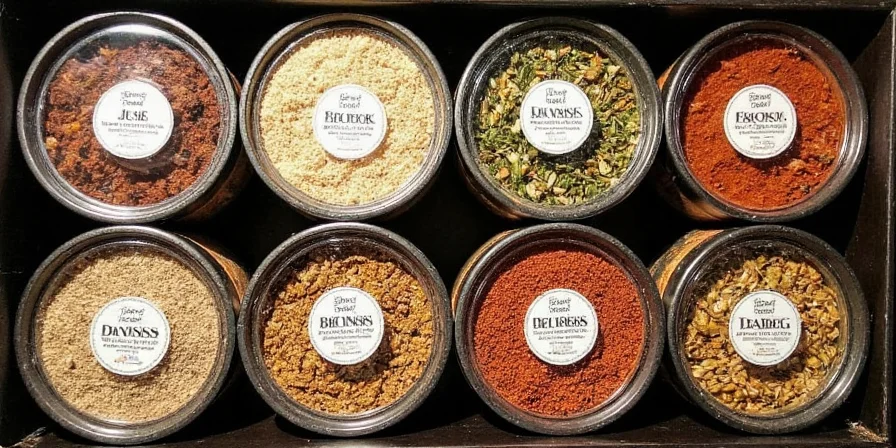The Shelf Life of Seasonings: Can They Really Go Bad?
As home cooks, we often rely on seasonings to elevate our dishes from mundane to extraordinary. However, many of us may not consider the longevity of these flavor-enhancers. Can seasonings go bad? This blog will explore the shelf life of various seasonings, how to store them properly, and tips to determine their freshness. Let's dive in!
Understanding Seasonings: What Are They?
Seasonings are substances used to enhance the flavor of food. They can be categorized into two main types: herbs and spices.
- Herbs: These are the leafy parts of plants, usually used fresh or dried. Examples include basil, oregano, and parsley.
- Spices: These are derived from other parts of the plant, such as seeds, roots, and bark. Examples include cinnamon, cumin, and black pepper.
Do Seasonings Expire?
While seasonings do not 'expire' in the same way that perishable foods do, they can lose their potency over time. Most dried herbs and spices have a shelf life of:
| Type of Seasoning | Shelf Life |
|---|---|
| Dried Herbs | 1-3 years |
| Dried Spices | 2-4 years |
| Ground Spices | 2-3 years |
| Whole Spices (e.g., whole peppercorns) | 4-5 years |
How to Store Seasonings Properly
To maximize the shelf life of your seasonings, proper storage is crucial. Here are some tips:
- Keep Them Cool: Store seasonings in a cool, dark place away from direct sunlight. A spice cabinet or drawer is ideal.
- Airtight Containers: Make sure your seasonings are in airtight containers to prevent moisture and air from degrading them.
- Label and Date: Label your containers with the purchase date to keep track of freshness.
- Avoid Humidity: Do not store spices near the stove or sink where they may be exposed to steam and moisture.
Signs That Seasonings Have Gone Bad
Knowing the signs of degraded seasonings can save you from flavorless meals. Here are some indicators:
- Loss of Aroma: If your spices no longer have a strong scent, they may have lost their flavor.
- Change in Color: A significant change in color may indicate that the seasoning is no longer potent.
- Clumping: If your herbs or spices are clumping together, they may have absorbed moisture and are likely past their prime.
- Off Smells: Any unusual or rancid smell means it’s time to toss them out.
Special Cases: Fresh Herbs and Spices
Unlike dried seasonings, fresh herbs have a much shorter shelf life. Here’s how to store them:
Fresh Herbs
- Refrigeration: Store them in the refrigerator in a damp paper towel or in a glass of water covered loosely with a plastic bag.
- Freezing: Chop and freeze herbs in ice cube trays with olive oil for long-term storage.
Fresh Spices
- Root Spices: Fresh ginger or turmeric can be stored in a cool, dark place or in the fridge, wrapped in a paper towel.
Can Seasonings Be Used Beyond Their Shelf Life?
While seasonings don’t spoil in a way that will make you sick, their flavor may diminish significantly. Using old seasonings can result in bland or unbalanced dishes. However, if you’re in a pinch, here are some hacks:
- Double the Amount: If your spices are past their prime, you may use double the amount to achieve a stronger flavor.
- Combine with Fresh Ingredients: Pair old spices with fresh ingredients to enhance the flavor profile.
Conclusion
In conclusion, while seasonings may not spoil in the traditional sense, their potency does diminish over time. Proper storage and awareness of signs indicating freshness can significantly enhance your culinary adventures. Keep your spices and herbs stored correctly, check for freshness regularly, and don’t hesitate to replace them when needed. Happy cooking!











 浙公网安备
33010002000092号
浙公网安备
33010002000092号 浙B2-20120091-4
浙B2-20120091-4